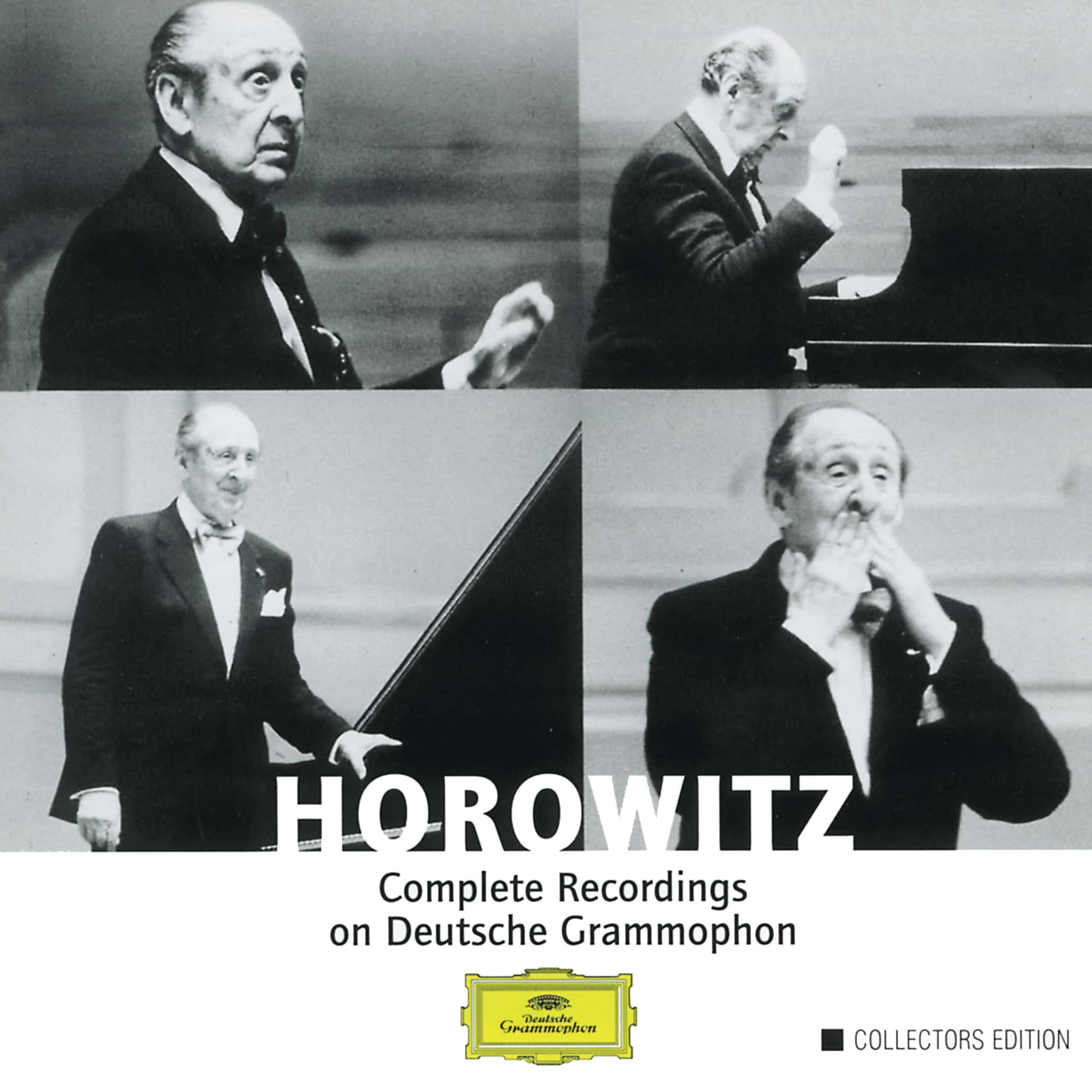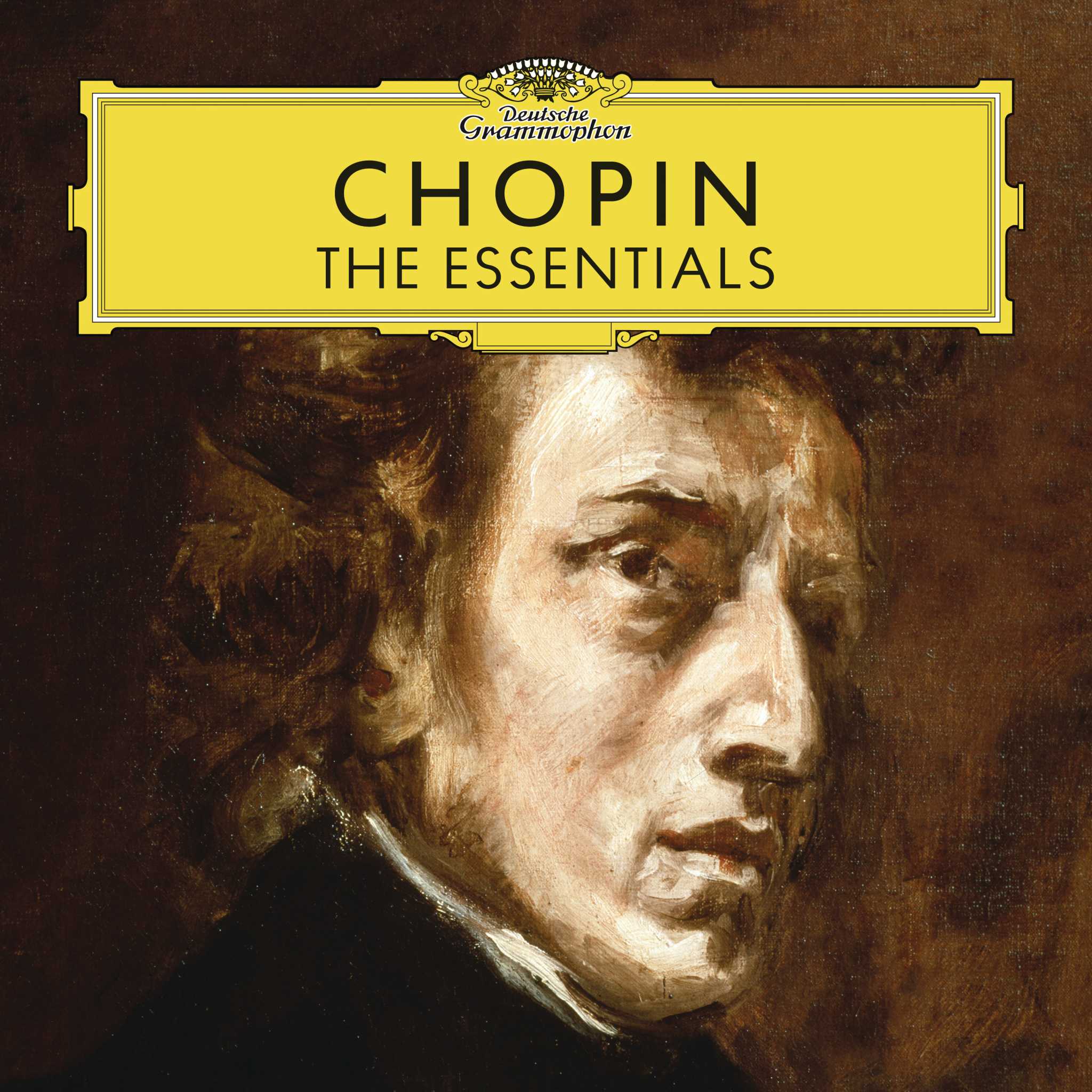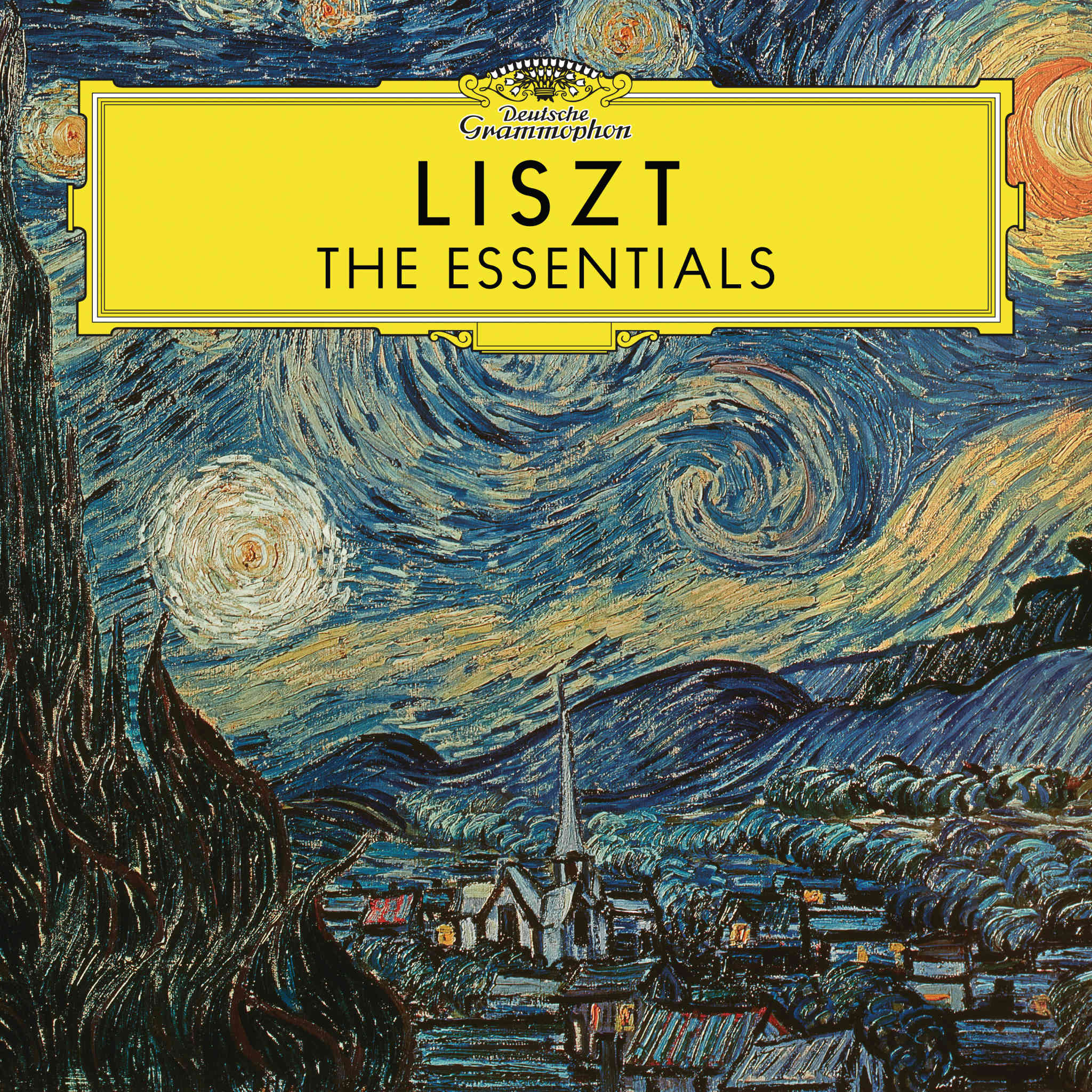Albums
Appears On
Documentaries
AboutVladimir Horowitz

Vladimir Horowitz, in today's transcription from Ukrainian Volodymyr Samiylovich Horovyts, was born on October 1, 1903. He himself always stated his birthplace as the Ukrainian capital Kyiv, but his biographer Glenn Plaskin, supported by statements from Horowitz's wife Wanda and rabbinical documents, favors Berdychiv, about 150 kilometers away. Little Volodja, like his three siblings, received his first piano lessons from his mother Sophie, herself a gifted pianist. At the age of nine, he was admitted to the Kyiv Conservatory, where Vladimir Puchalsky, Sergei Tarnowsky, and Felix Blumenfeld taught him. In 1920, as part of his public graduation examination there, he performed Sergei Rachmaninov's Piano Concerto No. 3 for the first time, which would become one of his signature pieces. His first solo recital also took place that same year. At this time, Horowitz primarily saw himself as a composer. However, the political circumstances in the early years of the Soviet Union and the resulting economic hardship of his family quickly forced him to abandon this and concentrate exclusively on his career as a pianist. Between 1921 and 1925, Horowitz, either solo or as a duo partner with his friend, the violinist Nathan Milstein, gave an almost immeasurable number of concerts in the Soviet Union, not only in metropolises like Moscow, Leningrad (23 performances with eleven different programs in the 1922/23 season alone), and Kyiv, but also in small towns under sometimes adventurous circumstances. Milstein recounts this in his autobiography, as well as the Carmen Variations and transcriptions that originated during this period and became legendary.
In 1925, Vladimir Horowitz left the Soviet Union. His father was the only one of his family he would see again years later, in 1934. His first concert abroad took place on January 2, 1926, in Berlin. In the following two years, he already celebrated triumphs throughout Europe. On January 12, 1928, he debuted in the USA: with the New York Philharmonic Orchestra under Sir Thomas Beecham, he played Tchaikovsky's Piano Concerto No. 1 with such sensational success that all doors of the musical world were open to him from then on. In 1932, he performed for the first time with Arturo Toscanini (Beethoven's Piano Concerto No. 5), whose daughter Wanda he married the following year. In 1934, their daughter Sonia was born. Two years later, Horowitz's depression, which would accompany him throughout his life and forced him to take long breaks from performing several times (1936–38, 1953–65, 1969–74, and even in old age 1983–85), became noticeable for the first time. However, his love for his instrument and the idolatrous adoration of the audience always moved him to perform publicly again. His Carnegie Hall comeback after twelve years on May 9, 1965, went down in history as one of the most triumphant concerts of the 20th century. Nevertheless, Horowitz reduced his appearances more and more with increasing age; the overexertion of his youth and the immense expectations of the audience and himself took their toll.
For Vladimir Horowitz, who had settled in the USA in 1939 after four years in Paris and had been a US citizen since 1944, New York became the center of his life and artistic endeavors. There he gave the majority of his concerts, and there most of his recordings were made. Between 1951 and 1982, he performed only in the USA and Canada. With his enthusiastically received concert on May 22, 1982, in London, Horowitz's astonishing late career began. It led him to Japan for the first time in 1983, back to the Soviet Union (Moscow/Leningrad) on April 20, 1986, after 61 years (!), and shortly thereafter back to Germany (Hamburg/Berlin/Frankfurt), where his unique international career had begun. On December 15 of the same year, he performed for the last time in the USA; the Hamburg concert on June 21, 1987, marked his farewell from the concert stage. On November 5, 1989, Vladimir Horowitz died in New York of a heart attack. Alongside his father-in-law, he is buried in the Toscanini family tomb in Milan's Cimitero Monumentale.
“Piano playing consists of intellect, heart, and technical means. Everything should be equally developed. Without intellect, you are a fiasco; without technique, an amateur; without heart, a machine.” Horowitz's singular significance lies in the fact that he was able to realize this claim for himself in all phases of his career. While the focus of his repertoire naturally lay in High and Late Romanticism, with Chopin, Schumann, Liszt, Rachmaninov, and Scriabin, he was open to almost every pianistic style throughout his life: his enduring Bach interpretations, his increasingly finely chiseled Scarlatti with age, are as indispensable to the overall picture of Vladimir Horowitz as his evenly classical interpretations of Mozart and Beethoven sonatas. But works by composers such as Sergei Prokofiev, whose "War Sonatas" Nos. 6, 7, and 8 he was the first to introduce in the USA, or Samuel Barber, whose Piano Sonata owes its premiere to him, were also part of his repertoire. In the early years of his international career, he caused a sensation primarily due to his unique technique; later, it was increasingly the colorfulness of his interpretations, his sensitivity to the delicacy of small forms, that fascinated the audience and even the critics, who had not always been well-disposed towards him.
Vladimir Horowitz made countless recordings; the microphone accompanied his "century-long career" from early, still acoustic recordings to the CD era. Among them are such outstanding works as his first recording of Liszt's B minor Sonata (1932), the absurd Tchaikovsky Concerto under Toscanini (1941), the live recording of the New York comeback of 1965, or the Rachmaninov Piano Concerto No. 3 under Eugene Ormandy at Carnegie Hall in 1978. It was a great surprise when Horowitz, at 82, finally signed an exclusive contract with Deutsche Grammophon. In the following years, such treasures as his only recording of a Mozart concerto (KV 488 under Carlo Maria Giulini), the enchanting poetry of Robert Schumann (Kinderszenen, Kreisleriana), but above all the sensational live recording of the Moscow concert of 1986 (Horowitz in Moscow), one of the most successful classical CDs worldwide, were produced for the yellow label. Among Horowitz's many honors and awards are no fewer than 24 Grammy Awards, the last and most important of which was awarded to him posthumously in 1990 for his lifetime achievement.
Horowitz in his own words
AMERICAN DEBUT WITH SIR THOMAS BEECHAM
"At that time, I was less controlled, and my playing sometimes had a certain showmanship. Beecham tried to keep up, which he couldn't. We didn't end together, but the important thing was that I played my way, not his."
MARRIAGE
"After we got married, Wanda told me she had decided I was the right man for her. She had discussed it with her father, who listened sympathetically and only said: 'You will have a difficult life. You are marrying an artist. It is difficult to be married to an artist.' Wanda knew that. Her mother's life was a good example. She had to endure Toscanini's tantrums, his stubbornness, his obligations, his intolerance, his egoism, and his affairs."
THE SMALL DETAILS
"Putting on socks so they don't pinch. Making sure my shoes are tied. That my fly is zipped. Otherwise, it's terrible. Don't be nervous. Don't rush. Perform all movements calmly. I don't think about music at all. You know, the tragedy of the artist is like in Pagliacci. You have to be inspired at a very specific time, want to play, and be in shape. Maybe at four – just at four – I happen to have a stomach ache. So I try to be very calm. No one is allowed to disturb me, and if someone disturbs me, they'll get a trouble they've never experienced before."
ON STAGE
"On stage, you are the king, and you should try to appear like one. In Mozart's time, every gesture was significant. Lace, a pinch of snuff, a small beauty mark . . . Take Chopin! He was a dandy – he chose only the most precious! Liszt too. The audience pays admission, and they want to see something aesthetic."
MOZART & CHOPIN
"Pablo Casals once told me that one must play Mozart like Chopin, and Chopin like Mozart. He was right."
75 YEARS OLD
(to photographer Christian Steiner)
"Haven't I kept well? Come here. Feel my muscles."
Excerpts from Harold C. Schonberg: Horowitz. His Life and Music (New York, 1992)

















